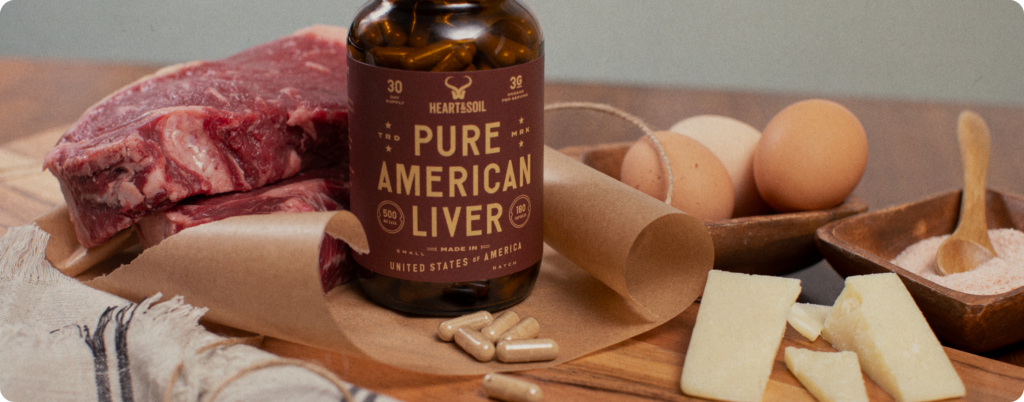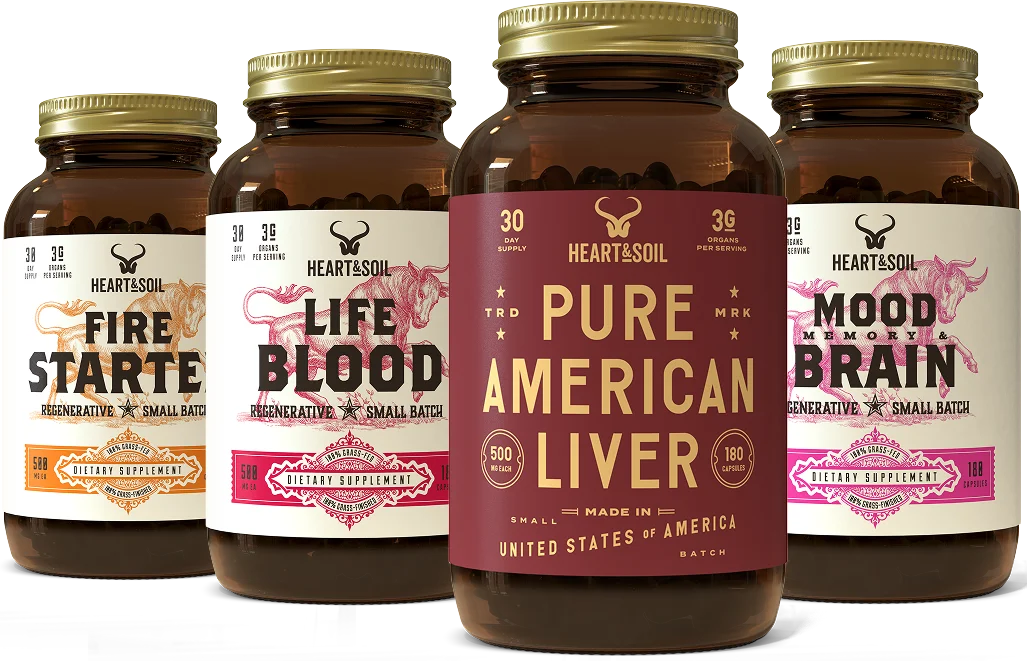PLEASE NOTE: The information in this blog is for educational purposes only. It is not a substitute for professional medical advice. Consult your healthcare provider if you’re seeking medical advice, diagnoses, or treatment.
Breastfeeding is a beautiful way to nourish your baby, but for many mothers, ensuring an adequate milk supply can be a challenge.
Fortunately, natural strategies rooted in an animal-based diet and holistic lifestyle practices can help boost your milk supply. Let’s explore these approaches together.
Breastfeeding and Nutrition
Breastfeeding is energy-intensive, requiring women to consume about 500 extra calories daily. Most micronutrient intake recommendations increase during lactation, except for iron (1).
Milk production relies on hormones regulated by the pituitary gland—prolactin stimulates milk production, and oxytocin aids in milk letdown. For these hormones to function optimally, a range of vitamins, minerals, and other nutrients are essential (2).
When you nourish yourself well, you can better nourish your baby! The concentrations of many nutrients in breast milk, including thiamin, riboflavin, and vitamin B6, are strongly influenced by maternal intake (3). Thankfully, an animal-based diet is rich in nutrients supporting lactation.

Nutrient-Dense Foods To Boost Your Milk Supply
A balanced, nutrient-dense diet plays a crucial role in supporting milk production. Here’s how different food groups contribute:
Protein
- Why it Matters: Protein supports hormone synthesis and neurotransmitter production. It’s rich in tyrosine, vitamin B6, choline, and zinc—nutrients that enhance dopamine, prolactin, and oxytocin levels (4).
- Sources: Grass-fed beef, pasture-raised poultry, eggs, shellfish, and Animal-Based Protein.
Liver and Organ Meats
- Why It Matters: Organs are not only safe to consume while breastfeeding but also nutrient powerhouses, offering bioavailable vitamin A, iron, folate, and B vitamins crucial for energy, hormone production, and postpartum recovery (5).
- Sources: Fresh organs or desiccated organ supplements.
Dairy and Calcium
- Why it Matters: Calcium supports strong bones and muscle contractions for milk ejection, and it prevents maternal bone depletion during lactation (6).
- Sources: Milk, kefir, yogurt, cheese, and Bone Matrix.
Fruits
- Why it Matters: Magnesium in fruits supports neurotransmitter function, while vitamin C protects the pituitary gland from oxidative damage (7).
- Sources: Sweet fruits like bananas, papaya, and apricots, and non-sweet fruits like avocados and squash can help boost your milk supply.
Connective Tissue
- Why it Matters: Packed with glycine and collagen, connective tissue aids healing from childbirth, sleep, hair health, and joint repair (8).
- Sources: Bone broth, gelatin-based recipes, short ribs, oxtail, and beef shank.

Key Supplements to Support Lactation
Desiccated organ supplements can conveniently offer additional nutrients from whole foods, free of synthetic fillers. These top supplements in our Prenatal/Postpartum Stack support maternal health and milk supply:
1. Pure American Liver
It contains B1, B2, B6, and B12 for energy metabolism and selenium to protect the pituitary gland and support your baby’s immune system and growth (9).
2. Mood, Memory & Brain
This supplement contains brain, bone marrow, and liver for omega-3 fatty acids (DHA & EPA), essential for baby’s brain development and maternal mental health (10).
3. Lifeblood
Containing whole blood extract, spleen, and liver, Lifeblood supports energy and immunity. Key nutrients:
- Iron: Crucial for supporting your energy levels. One serving of Lifeblood delivers 121% of your daily value!
- Vitamin D: Maternal vitamin D supplementation improves vitamin D status for both mother and baby (11). One serving of Lifeblood provides 22% of the daily value.
Nourish You and Your Baby
Whole-Food Prenatal Support from Organs
Lifestyle Tips for Boosting Milk Supply
In addition to nutrient-rich foods, adopting supportive lifestyle practices can enhance lactation:
1. Eat Plenty of Calories
- Why: Breastfeeding moms need about 500 extra calories daily to maintain energy and milk supply and keep stress hormones at bay (12).
- How: Keep your kitchen stocked with nutrient-dense foods for several meals a day and snacks to help boost your milk supply.
2. Hydrate Adequately
- Why: Proper hydration supports milk flow and overall energy.
- How: Opt for nutrient-rich fluids like raw milk, coconut water, bone broth, and fresh juices.
3. Prioritize Rest
- Why: Sleep is vital for regulating hormones, particularly prolactin and oxytocin (13).
- How: Take naps when your baby sleeps, share nighttime duties, and create a calming sleep environment.
4. Tend To your Mental Health
- Why: Stress can suppress oxytocin, affecting milk letdown (14).
- How: Practice deep breathing, connect with loved ones, and set boundaries. Small self-care acts, like a walk or warm bath, can also help.

The Bottom Line
Breastfeeding is a journey that requires patience, care, and consistent nourishment. By focusing on animal-based foods, nutrient-dense organs, and supportive lifestyle habits, you can help boost your milk supply while supporting postpartum health.
Remember, every mom’s journey is unique. If you have specific concerns about your milk supply or nutrition, reach out to a lactation consultant or your trusted doctor for personalized guidance.
Subscribe to future articles like this:
